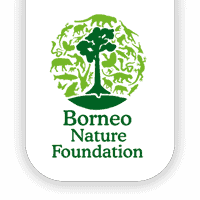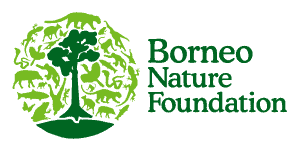The Sebangau National Park Agency (BTNS) and the Borneo Nature Foundation (BNF) Indonesia are carrying out an intensive programme to plant one million trees for ecosystem restoration.
Also read: Planting Hundreds of Native Trees for Nature Conservation Day 2022
An area of the Sebangau National Park currently being targeted for planting is Tangkiling Village in the Bukit Batu District of Palangka Raya. The reforestation zone is known as Km 53 and is flanked by a wooden hut where community members involved in the reforestation efforts can seek reprieve from the hot sun. Next to the hut are hundreds of native belangeran and pulai seedlings ready for planting.

Helping to implement this planting phase are community members from the local Fire Care Society and Habaring Hurung Community Nursery, divided into two teams of five.
Also read: Community Involvement is Important Part in Restoration of Sebangau National Park Ecosystem
Head of the Sebangau National Park, Andi M Kadhafi, explained that planting is still ongoing and, so far, 51,950 seedlings have been planted over an area of 46.75 hectares.

“The next phase will take place over an additional 30 hectares, with a total of 41,374 seedlings. Our target is to reach one million by planting across traditional and rehabilitation zones,” said Andi.
Traditional zones are areas of a national park that have been designated for traditional uses by the local community, who have historically depended on its natural resources.
A rehabilitation zone is an area of national park that has suffered damage, requiring interventions to restore ecosystem functioning.
Andi added that seedlings planted were either donated by the BPDASHL (Watershed and Protected Forest Management Agency) Kahayan or grown in the Habaring Hurung Community Nursery (CN).
Administratively, Sebangau National Park belongs to the Katingan Regency, Pulang Pisau Regency and Palangka Raya City. Sebangau National Park is the only national park in Indonesia where more than 90 percent of its area is peat ecosystem.
Sebangau National Park has an area of 568,700 hectares, with several key zones:
- The core zone, with an area of approximately 152,586 hectares,
- The jungle zone of 250,149 hectares,
- A utilization zone of 12,400.44 hectares,
- A traditional zone of 28,113 hectares,
- A rehabilitation zone of 43,945 hectares,
- A religious, cultural and historical zone of 875 hectares,
- A special zone (Natural Peat Swamp Laboratory) of 49,055 hectares.
Daniel Refly Katopo, Manager of Habitat Restoration at BNF Indonesia, said there are 84 hectares of land being targeted for the first and second stages of planting, focusing on pioneer tree species such as belangeran, pulai and jelutung.
41,374 seedlings are in the process of being planted. As a partner of the Sebangau National Park Authority, BNF strongly supports reforestation efforts in the Sebangau National Park area.

“For this reason, BNF Indonesia interfaces with local community groups and encourages their involvement in the tree planting process. BNF has always fully supported the reforestation movement in Sebangau National Park, and we have a commitment to preserving our environment,” he said.
Written by: Yohanes Prahara, Content Creator and Media Liaison BNF Indonesia


